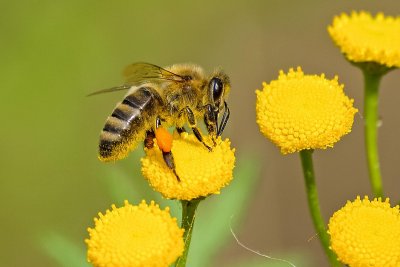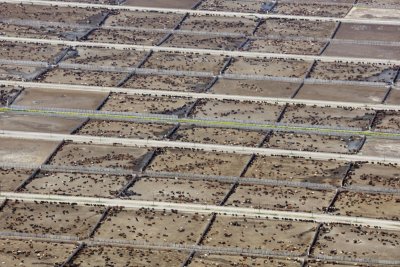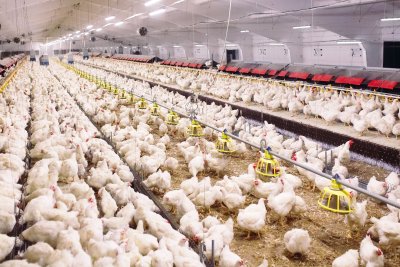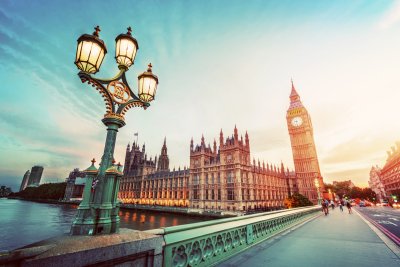News • Good Food Trade Campaign
25 Year Environment plan - comment from Sustain on farming, environment and fisheries
Initial Sustain response to the publication of the new Government 25 year Environment Plan By Prime Minister Theresa May today.

Ben Reynolds, Sustain Deputy CEO says
“Any attempt to tackle plastic waste is to be applauded, and we welcome other aspects of the 25 Year Plan like the commitment to spend public money on public goods. The acceptance by government that protection of our environment and a strong economy are not mutually exclusive is good news.
"But this feels like a massively missed chance to put clear targets and standards in place, especially on food, farming and fish. For every commitment, there are as many questions left unanswered in the Plan, such as details of the Environment legislation needed, on boosting farming sectors like organic, getting to grips with food procurement or protecting our fish stocks. We call on the Government to put detail and targets in the forthcoming agriculture and fishing bills in parliament.
"We are deeply concerned that key laws designed to prevent and prosecute those who pollute our environment may not be brought into UK law after Brexit. The new agencies policing our environment will need to have real powers to protect us all."
More sector specific comments:
Vicki Hird, Farm Campaign Coordinator says
“It’s a glass half full. We are happy to see how the Plan describes a new environmental land management system for farmers and land managers based on payment for public goods, an idea we have advocated for many years. But the devil is in the detail of how it well it will be funded, governed and enforced and accessible to all farmers.
The proposals for new wildlife habitats, and agroforestry are also welcome as are a renewed focus on soils, water and addressing pesticide and fertilisers yet none of these have strong new actions, legal basis and regulatory framework basis or resources. So outcomes may depend on good links to the farm scheme and to the vital new Environmental Act, new monitoring body and promised new legislation on Agriculture to keep government to account.
It was disappointing to see no mention of the benefits for nature and landscapes from organic farming, pasture based farming or from a diverse farming system and hope this will be addressed in the Agriculture White Paper. We were encouraged to hear May’s strong commitment to maintain and even strengthen environmental protections from Europe as we know from experience that voluntary measures are rarely enough to tackle the major environmental and social issues in our farmed environment and food system – from food waste to climate change.
An announcement now to extend the Groceries Code Adjudicator would also go some way to helping farmers have a better deal from their buyers and show how the government understands the need for fair returns in the marketplace to deliver a fair deal for the environment.”
and Ruth Westcott, Coordinator Sustainable Fish Cities says of commitments in the Plan:
"…the Government will publish an annual statement on the state of fish stocks of interest to the UK. (p106)
"This is a great commitment, but at the moment this annual statement will be full of gaps. We don’t currently understand the status of many commerciall-fished stocks in the UK, and they are managed to varying degrees of success through precautionary or data limited means. Many are not considered sustainable. This annual statement will only prove to be useful if the government invests in carrying out these assessments (this would be for species including black bream, brill, cuttlefish, some species of dogfish, gurnard, halibut in the north-east Atlantic and monkfish). Sadly this was lacking from the plan, and we would look for Government to make this clearer in the forthcoming Fisheries White paper."
All stocks recovered and maintained at Maximum Sustainable Yield (emphasis added – p27)
Ensuring that fish stocks are recovered to scientifically-determined sustainable levels is worthless without a timescale. If we are to assume that the target date is in 25years this is a huge step backwards. The EU’s current commitment is 2020.
This commitment does, however, include all commercial stocks. This therefore commits Government to establishing the status of stocks that currently don’t have enough data, and this is a fantastic commitment. This would see a return to sustainability of some very important commercial fisheries in the UK, and restore some of the stocks that are significantly below sustainable levels including Scottish langoustines, some scallops, skates and rays, turbot and halibut, sea bass, ling, some monk fish."
Backwards step on public sector procurement:
The Government could and should be using its power as a buyer to support a sustainable food system, and support British producers. The plan commits central government to use Defra’s ‘balanced scorecard’ when procuring food (see p90). Currently, the standards in the scorecard also apply to hospitals – a huge section of public sector purchasing - so this commitment is actually less that we are doing already."
Also see Deputy CEO Ben Reynolds Blog on Prime Minister Theresa May's speech on the new Plan.
Published Thursday 11 January 2018
Good Food Trade Campaign: Campaigning for good trade that benefits people and the planet at home and overseas.








